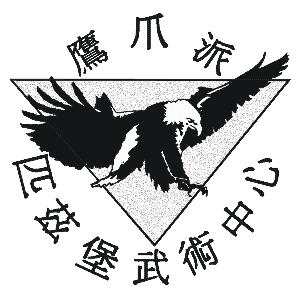
What Is Taiji Quan?
What Is Taiji Quan?
Taiji Quan (Tai Chi Chuan) is a time-tested art which gently exercises the body, the energy flow, and the mind, and can be used for health, longevity, mental freshness, and spiritual development. Taiji Quan aims at well-being, including the attainment of grace and balance, the promotion of physical and emotional health, and the development of energy flow. Though there are many varieties of Taiji Quan today, all have a common philosophy of relaxation of the mind and body so the body's natural energy can flow freely.
Taiji Quan, which means supreme ultimate boxing, was developed in the 17th century by Zhang San Feng, a Taoist monk who believed that martial arts practitioners need not exert physical energy when performing techniques. Instead, he believed that relaxation of the mind and body when facing confrontation would allow a practitioner to neutralize any attack.
Many people believe that Taiji Quan is not a martial art at all, but just an exercise for relaxation or health. Actually, Taiji Quan is a particular style of Chinese Kung Fu, and is often referred to as an internal or soft style of martial arts. In reality, while it does emphasize internal development, Taiji Quan, like all styles of Chinese martial arts, contains both internal and external, hard and soft components.
Taiji Quan was developed by and derives inspiration from Taoist priests whose preoccupation is to preserve life. While other martial arts tend to make their practitioners belligerent and aggressive, Taiji Quan helps its adepts to become calm and composed. The very nature of its training, with emphasis on gracefulness, gentleness, and harmonious energy flow, is intrinsic to the development of mental freshness and cosmic harmony. Taiji Quan practitioners are known for their love of freedom, disregard of mundane trifles, and penchant for joviality. A Taiji Quan master, while confident of his martial skills, is soft-spoken, humble, tolerant, and at peace with himself and with others.
It is difficult to find another exercise that is so convenient. Unlike many other types of exercise, in Taiji Quan you do not normally perspire a lot, despite the great benefits you can derive from it. Taiji Quan can even be practiced within the confined space of your office or bedroom. If you feel you have no time to exercise or working out in a gym is too demanding, practicing Taiji Quan just 15 minutes a day in the comfort of your home can provide you with all the exercise you need.
Taiji Quan for Health and Fitness
By health, we mean not only being free from illness, but an ability to sleep soundly, to work energetically, to think clearly, and to be calm yet alert. By fitness, we mean not just the physical strength to do heavy work, but the ability to react quickly, to endure hard work, and to concentrate for a long time without mental fatigue.
Taiji Quan is better than other forms of exercise in promoting health and fitness. In swimming, jogging, and karate, for example, the fitness acquired diminishes as one grows old, but in Taiji Quan it is enhanced. This is because Taiji Quan is more than physical exercise; it develops the inner faculties of essence, vital energy, and the mind. Taiji Quan is also effective for relieving and preventing illnesses like hypertension, arthritis, asthma, insomnia, migraine, depression, and nervousness. If practiced properly, it can prevent or relieve knee injury.
The meditative aspect of Taiji Quan and its emphasis on relaxed movement contribute to serenity of mind and clarity of thought. A Taiji Quan practitioner will exhibit more zest and vitality in both work and play than an ordinary person, and have calmness of mind and clarity of thought even under demanding situations.
How Is Taiji Quan Taught?
In your first class, you will be faced with a great deal of new information. In addition to exercises for stretching, muscle power, and vital energy, there are the actual movements of Taiji Quan. Each movement contains many physical components: movements of the feet, legs, trunk, arms, hands, eyes, and breath. These, however, are only the physical movements. There is also an underlying mental component of each movement.
Every movement in Taiji Quan has a specific purpose. It is up to the teacher to develop each student's understanding of that purpose, so the student can extract maximum benefit from practice. Some who teach Taiji Quan are not aware of the underlying purpose of each movement, and simply expect students to follow them through a series of unfamiliar movements. This method of teaching often leads to frustration and lack of progress for the student, and ultimately inhibits the student=s ability to benefit from Taiji Quan practice.
Learning Tai Chi at our school is different. In your first class, you will begin to learn how to relax all of your muscles to reduce tension. After your first month, you will feel a difference in the strength of your arms and legs, an increased ability to concentrate, and an improvement in your overall health. After your first six months, your increased relaxation, strength, and concentration will enable you to perform a set of basic Taiji Quan movements, and you will feel energy such as you have never known.
This progress, without unnecessary frustration is possible because, as teachers of Chinese martial arts, we understand the underlying nature of the Taiji Quan movements, their true purpose, and how to teach them to systematically to beginner students.